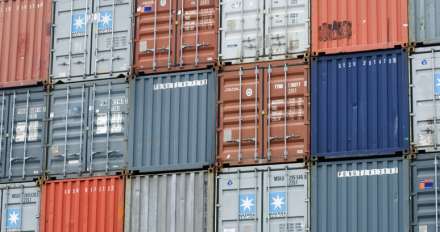davis phillips
davis phillips's contributions

Article
vSphere Cloud provider and VMDK dynamic provisioning
davis phillips
The release of OpenShift Container Platform 3.6 brings support for vsphere cloud provider. This provides vsphere VMDK dynamic provisioning for persistent volumes for container workloads. The storage presented to vsphere virtual machines as a VMDK has ReadWriteOnce access mode. In the OCP 3.6 on vSphere reference architecture, much of this process is automated and can be implemented easily. Virtual Machine Disks or VMDKs exists in virtual machines. Configuring the OCP cluster for vsphere cloud provider support requires: Master Node Configuration...

Article
Gluster for OpenShift - Part 1: Container-Ready Storage
davis phillips
OpenShift Container Platform (OCP) offers many different types of persistent storage. Persistent storage ensures that data should be insistent between builds and container migrations. When choosing a persistent storage backend to ensure that the backend supports the scaling, speed, dynamic provisioning, RWX/RWO support and redundancy that the project requires. Container-Ready Storage (CRS), or native Gluster for OCP, is defined by the concept of persistent volumes, which are OCP created objects that allow storage to be defined and then used by...

Article
Containerizing open-vm-tools - Part 2: Atomic CLI and Converting to a Systems Container
davis phillips
The content of the previous post discussed creating the open-vm-tools container’s Dockerfile and automating its started up via systemd with a unit file. Open-vm-tools as a service might need to start before the docker runtime or even the network stack, this leads us to runc and system containers. If you’ve finished the first article you have a running open-vm-tools Docker container. docker ps CONTAINER ID IMAGE COMMAND CREATED STATUS PORTS NAMES 5428906cd366 open-vm-tools "/bin/sh -c /usr/bin/" 13 seconds ago Up...

Article
Containerizing open-vm-tools - Part 1: The Dockerfile and constructing a systemd unit file
davis phillips
While validating OpenShift Container Platform on a VMware platform the usage of Atomic OS was also a requirement. In the initial reference architecture, the decision was made to use Red Hat Enterprise Linux as the platform. This platform was then customized and the same packages as in Atomic were installed via Ansible and Red Hat Network. The github repo with those playbooks is here: https://github.com/openshift/openshift-ansible-contrib/tree/master/reference-architecture/vmware-ansible . These playbooks will guide you from start to finish to deploying OCP on VMware...

Article
vSphere Cloud provider and VMDK dynamic provisioning
davis phillips
The release of OpenShift Container Platform 3.6 brings support for vsphere cloud provider. This provides vsphere VMDK dynamic provisioning for persistent volumes for container workloads. The storage presented to vsphere virtual machines as a VMDK has ReadWriteOnce access mode. In the OCP 3.6 on vSphere reference architecture, much of this process is automated and can be implemented easily. Virtual Machine Disks or VMDKs exists in virtual machines. Configuring the OCP cluster for vsphere cloud provider support requires: Master Node Configuration...

Article
Gluster for OpenShift - Part 1: Container-Ready Storage
davis phillips
OpenShift Container Platform (OCP) offers many different types of persistent storage. Persistent storage ensures that data should be insistent between builds and container migrations. When choosing a persistent storage backend to ensure that the backend supports the scaling, speed, dynamic provisioning, RWX/RWO support and redundancy that the project requires. Container-Ready Storage (CRS), or native Gluster for OCP, is defined by the concept of persistent volumes, which are OCP created objects that allow storage to be defined and then used by...

Article
Containerizing open-vm-tools - Part 2: Atomic CLI and Converting to a Systems Container
davis phillips
The content of the previous post discussed creating the open-vm-tools container’s Dockerfile and automating its started up via systemd with a unit file. Open-vm-tools as a service might need to start before the docker runtime or even the network stack, this leads us to runc and system containers. If you’ve finished the first article you have a running open-vm-tools Docker container. docker ps CONTAINER ID IMAGE COMMAND CREATED STATUS PORTS NAMES 5428906cd366 open-vm-tools "/bin/sh -c /usr/bin/" 13 seconds ago Up...

Article
Containerizing open-vm-tools - Part 1: The Dockerfile and constructing a systemd unit file
davis phillips
While validating OpenShift Container Platform on a VMware platform the usage of Atomic OS was also a requirement. In the initial reference architecture, the decision was made to use Red Hat Enterprise Linux as the platform. This platform was then customized and the same packages as in Atomic were installed via Ansible and Red Hat Network. The github repo with those playbooks is here: https://github.com/openshift/openshift-ansible-contrib/tree/master/reference-architecture/vmware-ansible . These playbooks will guide you from start to finish to deploying OCP on VMware...
